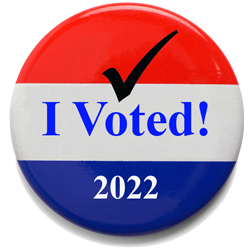Construction companies in the Boston area will need to recruit 10,306 blue-collar workers on top of the normal pace of hiring in 2022 to meet the demands of the current building market. These statistics are based on forecasts from Associated Builders and Contractors, Inc. (ABC), an association comprised primarily of U.S. firms that work in industrial and commercial construction sectors.
"The construction industry desperately needs qualified, skilled craft professionals to build America," said Michael Bellaman, ABC president and CEO. "The Infrastructure Investment and Jobs Act passed in November and stimulus from COVID-19 relief will pump billions in new spending into our nation's most critical infrastructure, and qualified craft professionals are essential to efficiently modernize roads, bridges, energy production, and other projects across the country. More regulations and less worker freedom make it harder to fill these jobs."
The construction industry's appetite for new hires in the Boston area will continue into 2023, according to ABC. It is expected that during that year, an additional 9,355 blue-collar workers in addition to the normal pace of hiring.
Read More
Topics
best way to advertise,
radio advertising,
job boards,
recruitment advertising,
employment advertising,
help wanted,
passive job seekers,
Zip Recruiter,
blue collar,
Indeed,
Monster.com,
hire qualified candidates,
construction workers
No matter which Boston television station or cable channel adults tune to in 2022, they can expect to be assaulted by a deluge of political advertising. Often entire commercial breaks are stuffed with back-to-back pleas and promises to secure viewers' votes.
But is advertising on WCVB, WHDH, WBZ, WCVB, or WFTX the most effective way to reach likely voters in the Boston area? Or is advertising on cable channels provided by Xfinity, DISH, DirecTV, and RCN the way to go?
The answer is neither. According to research from Nielsen, the best way to reach local adults who are most likely to vote is by advertising on Boston radio.
Every week, 2.5 million likely voters will listen to Boston radio stations. This is significantly more than watch local TV, cable, and streaming video. More that use social media and streaming audio. More than will read newspapers.
Read More
Topics
best way to advertise,
radio advertising,
television advertising,
political advertising,
Cable TV,
voters,
likely voters,
registered voters,
political rates,
local television,
republican voters,
democratic voters,
independent voters
The current high rate of inflation is tempering how much Boston business owners can spend on advertising.
According to the U.S. Census Bureau, there are approximately 206,000 small businesses in the Boston area. There is one thing each of the owners of the companies has in common, whether they own a hardware store in Quincy, a furniture store in Welsely, or a restaurant in Charlestown. They are all experiencing the negative consequences of inflation.
In a monthly survey conducted by the National Federation of Independent Business Owners (NFIB), inflation now ranks second as the single most important problem companies face. A year ago, inflation was barely an issue.
Inflation has not hampered the enthusiasm to spend among Boston area consumers keeping retail sales hovering above pre-Covid levels. But, inflation is taking a dramatic toll on the amount of revenue business owners can keep.
According to the U.S. Chamber of Commerce, small business owners see inflation-fueled price increases in almost every cost of operation, including inventory, utilities, rent, and wages.
Because of these rising operational costs, Boston business owners are looking to cut expenses where they can, including advertising expenditures. But, because there is still robust consumer demand for goods and services, these companies need to make sure that the amount they do invest in advertising has the best return possible.
By almost any marketing metric, advertising on Boston radio provides the greatest return-on-investment (ROI) of any medium available to local business owners.
Read More
Topics
best way to advertise,
radio advertising,
small business owner,
small business marketing,
small business,
small business advertising,
advertising on a budget,
advertising options,
inflation
There are 205,625 small businesses in the Boston-Cambridge-Newton, MA-NH Metro Area, according to the US Census Bureau. Based on projections from the National Federation of Independent Business Owners (NFIB), nearly half of these companies have job openings they cannot fill.
As a result of the acute labor shortage, says the NFIB, 29% of small business owners rank the quality of labor as the most important problem they face. A year ago, only 21% said finding workers was their biggest issue.
The labor crunch in the Boston area is being driven, in big part, by a record-high number of employees voluntarily quitting their jobs. Just last month, according to the US Bureau of Labor Statistics, 4.5 million employees across the country left their current place of employment.
According to the Wall Street Journal, those who are not currently working say they are in no hurry to return to the workforce. The lack of urgency stems from five primary reasons:
- 29% say they don't need to work right now because their spouse is employed
- 28% say they cannot return to work because of care responsibilities at home
- 25% say they don't need to return to work because they have a financial cushion
- 20% say they are fearful of returning to work because of COVID-19
- 5% say they do not need to return because of current unemployment benefits
There seems to be little chance that these resigned workers can be lured back into the labor force. Therefore, to fill open jobs, local business owners will need to focus their efforts towards recruiting among Boston's "passive" job candidates.
Read More
Topics
radio advertising,
social media advertising,
job boards,
recruitment advertising,
employment advertising,
help wanted,
passive job seekers,
active job seekers,
Zip Recruiter,
Indeed,
Monster.com,
radio recruitment
To ensure success, every Boston business owner needs to advertise.
"Think you have a great product?" asks the US Small Business Administration. "Unfortunately, no one’s going to know about it unless you advertise.”
The SBA goes on to say, “Advertising, if done correctly, can do wonders for your product sales, and you know what that means: more revenue and more success for your business.”
There are dozens of ways for local small business owners to advertise. By most metrics, the best way to advertise is on Boston radio. These measures of effectiveness, however, are often obscured by the glimmer and glitz of newer technologies.
To help reduce the glare that often blinds business owners to the potency of advertising on Boston radio, here are the top five things many local business owners get wrong.
Read More
Topics
boston radio,
radio advertising,
advertise on radio,
radio commercials,
radio listening,
radio history,
advertising on radio,
advertise on boston radio,
radio formats,
car radio,
who listens to radio
When WBZ-AM became Boston's first radio station in 1922, there was no Facebook, no Xfinity, no Sirius/XM, no Netflix, and no podcasts. It would be 26 years before there was even a local TV station. Consequently, it was pretty easy for radio to become the number one reach medium among local consumers.
Over the past 99 years, Boston business owners have come to depend on the mammoth reach of radio among local shoppers to successfully market the goods and services they sell. Advertising on Boston radio has helped New England companies to survive and thrive during world wars, natural disasters, recessions, depressions, and even a pandemic.
Heading into 2022, local consumers have more media choices than ever before. But, despite the overabundance of social media, video streaming, audio streaming, cable, and other technological marvels, Boston radio is still the most used advertising medium.
Read More
Topics
boston radio,
reach,
radio advertising,
advertising reach,
pandora,
spotify,
advertise on radio,
streaming audio,
sirius/xm,
podcasts,
advertising on radio,
advertising options,
podcasting
Based on projections from the National Retail Federation (NRF), Boston consumers are on track to spend $72-billion with retailers by the end of this year. This would be 13.5% higher than was spent in 2020.
To earn a significant share of these retail dollars, Boston area business owners are expected to spend $3.2 billion to advertise by year's end, according to Borrell Associates. This company tracks advertising expenditures in local markets across the U.S.
To ensure they are spending their advertising and marketing dollars wisely, many Boston business owners research how to best target prospective customers by using local media. An exceptional resource for local business owners to investigate the media habits of localconsumers is on the advice section of AdvertiseInBoston.com.
Here are the top five most-read articles on the site in 2021:
Read More
Topics
radio advertising,
advertising reach,
advertise to women,
online advertising,
social media advertising,
television advertising,
how to advertise,
advertise in new england,
effective advertising,
digital advertising,
advertise on radio,
small business advertising,
recruitment advertising,
advertising on a budget,
advertising on radio,
advertise on boston radio,
advertising options,
business-to-business advertising,
internet advertising,
advertising roi
Boston consumers are on track to spend more than $72 billion at retail this year, based on projections by the National Retail Federation (NRF). Spending is expected to be 13.5% higher than last year.
Some Boston small business owners, though, are wondering if the spread of the Delta Variant may slow spending if consumers sense pressure on their own financial security. Shoppers, however, don't see it that way.
New research from Nielsen indicates that 82% of consumers believe their household finances will either remain the same or improve during the upcoming months.
The Nielsen study has another finding that Boston business owners will find promising. Consumers are more likely to shop locally than they did before the onset of the pandemic, although in different ways.
Read More
Topics
retail,
best way to advertise,
radio advertising,
roi,
consumer spending,
return on investment,
retail sales,
retailer,
retail store,
retail spending,
advertising roi,
shopping
Since 1922, local small business owners have been advertising on Boston radio to market the goods and services they sell.
Lately, some of these advertisers are voicing concerns, though, that the accelerating use of smart speakers could erode the effectiveness of commercials on local stations. Current research, however, reveals that these devices actually extend the reach of the medium and its ad content.
More than 1.2 million consumers in Boston have a smart speaker in their homes, according to Nielsen. This is 30% of the local adult population.
Smart speakers are internet-enabled devices controlled by spoken commands and capable of streaming audio content, relaying information, and communicating with other devices.
According to the Cooperative Institutional Research Program (CIRP) data, Amazon Echo (aka Alexa) accounts for 69% of all smart speakers in use. Google's smart speaker makes up another 20% of the market. The remaining 11% of the market comprises Apple Home (aka Siri), Sonos, and Bose.
Boston consumers can use their smart speakers to accomplish a diverse range of tasks, including accessing news, weather, and sports information; turning on lights in the house; shopping; and food delivery.
The most common use of a smart speaker, though, is streaming audio, including Boston radio stations, according to eMarketer. Edison Research's Share of Ear Study indicates that consumers devote 13% of their total time using a smart speaker listening to AM/FM radio stations. This is second only to the time spent listening to Amazon Music at 19%.
Read More
Topics
radio advertising,
small business owner,
small business marketing,
online advertising,
how to advertise,
small business,
effective advertising,
small business advertising,
streaming audio,
amazon echo,
siri,
smart speakers,
google home,
radio listening,
alexa,
apple
Boston business owners who sell goods and services related to Halloween can expect far more treat than trick this year.
Based on estimates from The National Retail Federation (NRF), Boston consumers are expected to spend a record $160,773,775 on Halloween. This would be 19.3% more than was handed out in 2020.
The NRF estimates that 65% of consumers intend to celebrate Halloween or participate in Halloween activities this year, up from 58% in 2020 and comparable with 68% in 2019 before the COVID-19 pandemic.
The top ways consumers are planning to celebrate include handing out candy (66%), decorating their home or yard (52%), dressing in costumes (46%), carving a pumpkin (44%), and hosting or attending a party (25%).
Boston small business owners looking to scare up a share of this Halloween cash will need to advertise to drive local consumers to their stores and websites. But, to make a difference, advertising needs to begin right away.
"This year consumers are shopping for Halloween items earlier than ever," says the NRF, "with 45% planning to shop in September or earlier and another 39% during the first two weeks of October."
Read More
Topics
retail,
best way to advertise,
radio advertising,
roi,
return on investment,
children,
retail sales,
retailer,
retail store,
halloween advertising,
retail spending,
Pet Owners












